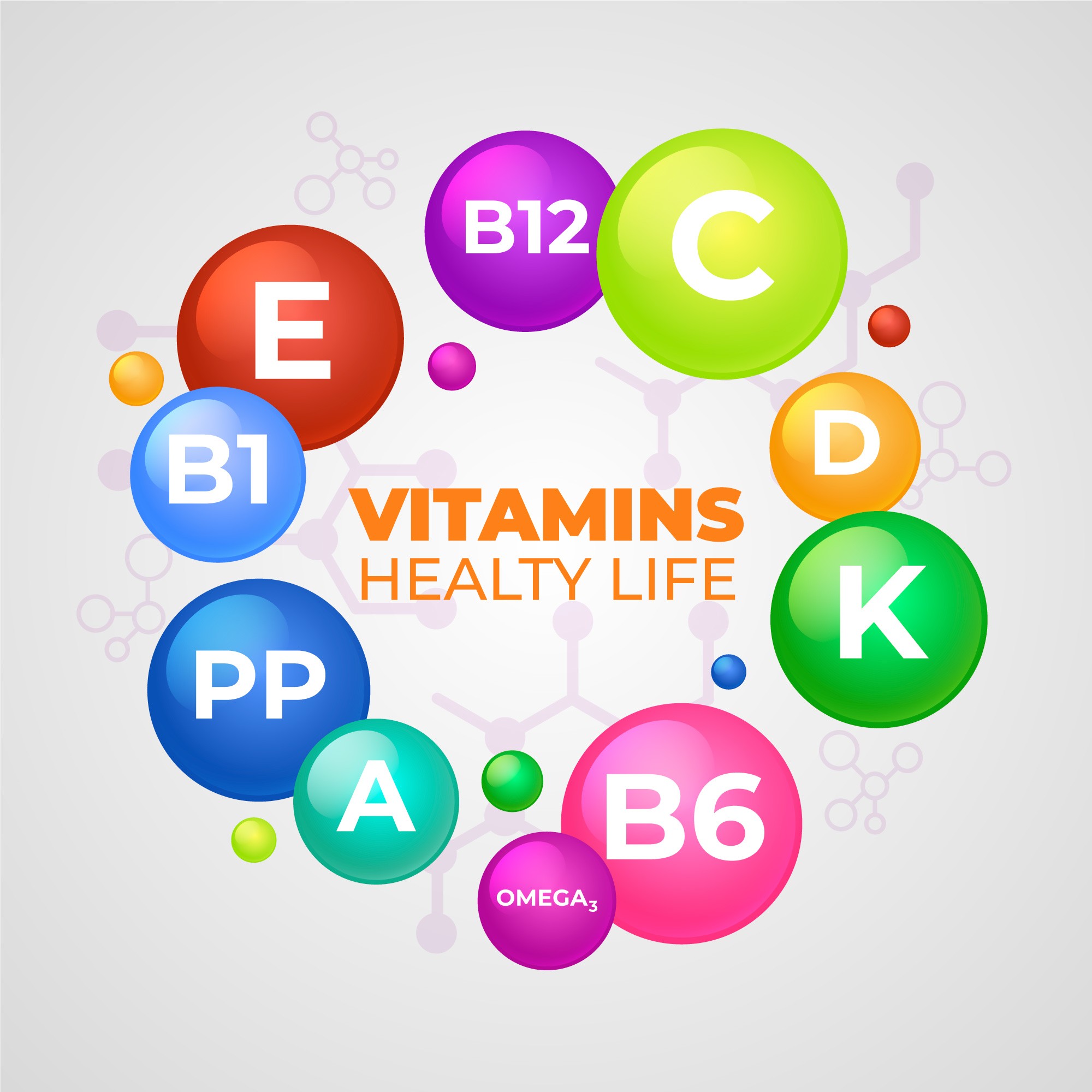Our body requires thirteen essential vitamins all of which play a varied role in the body’s growth and functioning. The vitamins are obtained from a variety of foods. If we are negligent in eating some foods, it can cause deficiencies of certain vitamins leading to Vitamin deficiency diseases. Vitamin deficiencies can be diagnosed by blood tests and should be controlled as early as possible. An accurate diagnosis can help in developing appropriate Vitamin deficiency treatment guidelines
Vitamin Deficiency Causes
The common cause of vitamin deficiency is the absence of a well-balanced and healthy diet. Vitamins are complex substances that are present in vegetables, fruits, meat, grains, seafood, poultry, and dairy products. Our body absorbs vitamins from the food we eat. In addition to dietary deficiencies, certain medications and diseases affect the body’s ability to absorb vitamins even if the intake is adequate. Vitamin deficiency symptoms like hair are matters of concern that needs to be addressed by consulting a neurologist A full body check-up can help to identify the possible causes behind the deficiency. Your doctor will help you with tips to keep your body healthy.
Vitamin Deficiency Symptoms
Numbness, Abnormal Heartbeat, and Tingling Fingers:
These are the signs of calcium deficiency. Calcium is crucial for maintaining bone strength, controlling nerve and muscle function. There are no obvious symptoms of calcium deficiency. You are likely to get enough calcium if you have yoghurt or milk every day. Cheese is also a good source of calcium. It also helps to have breakfast cereal like oats and dark leafy greens like broccoli. Do take the above mentioned foods in your daily diet, they will likely help in reducing joints and legs pains which ultimately will keep you healthy.
Bone Ache and Mood Swings:
These vitamin deficiency symptoms along with fatigue and muscle weakness are caused by vitamin D deficiency. A deficiency that persists for a long time causes the bones to soften. It can also cause complications like autoimmune diseases and cancer. It is best to eat foods like fatty fish like tuna or salmon, and fortified yogurt. An exposure of at least 10 to 30 minutes to sunshine can do wonders for building this vitamin. A comprehensive health check-up can help evaluate your condition.
Muscle Weakness, Irregular Heartbeat, Constipation:
Potassium deficiency can lead to these vitamin deficiency symptoms. Some other symptoms include twitches, cramps, tingling, constipation, numbness, and palpitations. Potassium helps nutrients to reach the cells and assists in waste removal. It helps in the working of nerves, muscles, and heart. Healthy potassium levels help to counter the negative effects of sodium and help in maintaining optimum blood pressure levels. Foods that supplement the diet with potassium are milk, bananas, kidney beans, lentils, and other legumes.
- Shortness of Breath, Brittle Nails, Fatigue, Cold Hands, and Feet:
These vitamin deficiency symptoms are indicative of anemia. It is caused by a deficiency of iron, which produces oxygen-carrying red blood cells. Iron deficiency also causes pale skin, sores on the tongue, and headaches. Iron-rich sources of food are beans, spinach, and lentils.
Problem in Walking and Balance, Memory Loss, Numbness in Limbs:
Vitamin B 12 helps in red blood cell and DNA production. Its deficiency includes other problems also like anemia, swollen tongue, difficulty in comprehension and thinking, and fatigue. Vitamin B 12 deficiency is glaring in vegetarians because it is not found in plants. So, vegetarian people need to either consume animal products like milk, chicken, etc or eat fortified foods like cereals. ·
Diarrhoea, Smooth Tongue, Irritability:
Folic Acid or Folate aids in healthy body functioning and supports growth. It helps reduce birth defects in an unborn child. Dietary sources of folate include peanuts, sunflower seeds, whole grains, dark leafy greens, and eggs.
Loss of Appetite, Nausea, Vomiting, Fatigue:
Magnesium helps in healthy bone growth and generates energy. Some people are not able to assimilate magnesium due to certain diseases like type 2 diabetes or medications like antibiotics. Severe deficiency may also cause muscle cramps, irregular heartbeats, and personality disorders. The deficiency can be covered by including nuts like cashews, peanuts, and almonds, beans like edamame, black beans, etc.
Vitamin Deficiency Risk Factors
Some factors can increase your vitamin deficiency risks.
- Certain diet types can make you deficient in vitamins. For example, Vitamin B12 is found in meat. If you are vegetarian or vegan, you are likely to be at risk of Vitamin B 12 and biotin deficiency.
- If you are on a vegan diet, then you do not consume milk products. This increases your risk of Vitamin D deficiency.
If you are on a gluten-free diet, then you are consuming fewer grains. This can make you deficient in several vitamins as grains are naturally rich in vitamins.
- Having too many processed foods and fewer fruits and vegetables can lead to vitamin K deficiency.
- Some medical conditions can cause vitamin deficiency. These include liver failure, kidney diseases, irritable bowel syndrome, chronic diarrhea, etc. For any stomach problems, you can consult the gastroenterologist
Vitamin Deficiency Complications
Continued vitamin deficiency can lead to severe health issues that may require prolonged treatment. Severe deficiencies can cause problems like memory loss, shortness of breath, decreased sensitivity in hands and feet, blurry vision and its loss, behavioral changes, weakness in fingers and toes and a rapid heart rate or tachycardia.
If you’re facing any of these vitamin deficiency symptoms and are looking for treatment, contact Dr. Gooddeed Clinics.
FAQs
- How can you find out if you have a vitamin deficiency?
If you notice visibly persistent symptoms like fatigue and weakness, you need to go for a health check-up.
- What diseases are caused by a lack of vitamins?
Several diseases like anemia, scurvy, beriberi, rickets, and more are caused by vitamin deficiency.
- What is the best vitamin for weakness?
You can have Vitamin B 12 as it helps recovery from fatigue, muscle weakness, and memory loss.
ALSO READ















